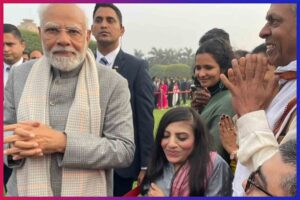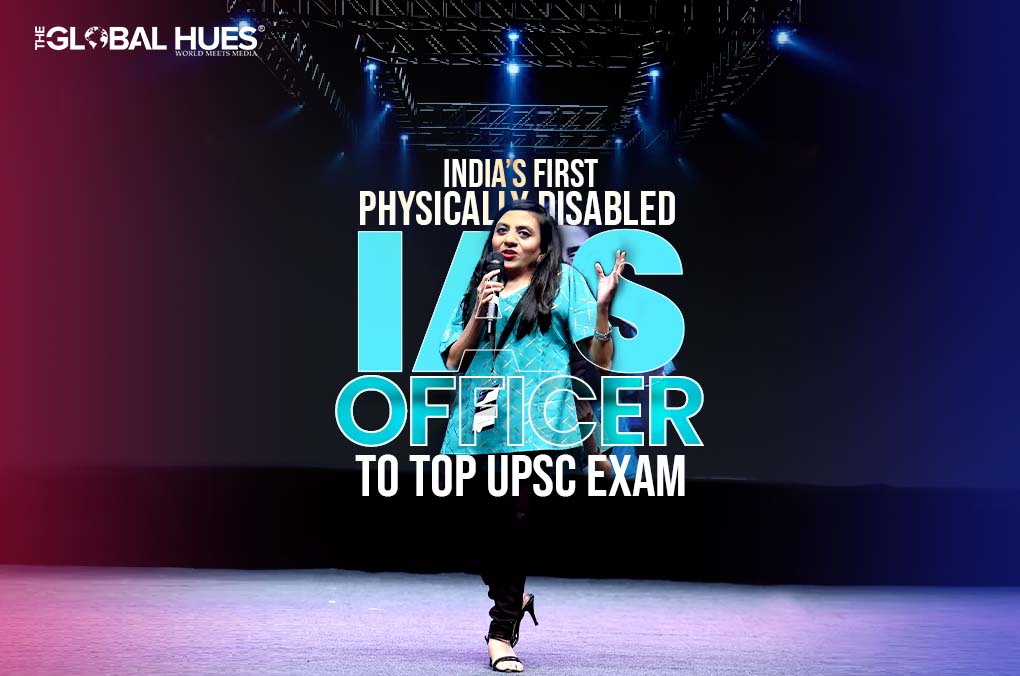“While I had a very successful corporate career, my 20 hours of hard work in a day wasn’t making any tangible impact in the people’s lives,” shares Ira Singhal , India’s first physically disabled IAS officer to top UPSC Exam when we asked what made her join civil services.
Yearning for a profession where her efforts would tangibly improve the world, Ira Singhal decided to join the civil services. She shares, “I wanted to get into a profession in which people would say because of what you did, my world is better.” 27-year-old Ira, thus, sat for the UPSC examination for the first time in 2010. Despite qualifying for the exams not once, not twice, but thrice, she faced rejection by the IRS. Despite her fulfilling all the abilities, she was rejected because of her ‘disability’. “It had seemed like they had rejected me, just because they didn’t like my disability,” she mentions.
Ira had to fight a four-year-long battle to legally get what she deserved. She is currently posted as Deputy Commissioner, Tirap in Arunachal Pradesh.
We connected with Ira Singhal, the first ever physically disabled person to top the IAS examination in 2014, to learn more about her and understand how her story reflects the true spirit of Nari Shakti.
You are the first person with a disability to have topped the UPSC CSE exam. However, there is a big story behind how you broke the stereotypes. Provide us with more details on these aspects.
I had a very successful corporate career, even though most people wouldn’t believe that people with disability can work in the corporate sector. I loved my job because I had the chance to do some engaging and unusual activities. Although I worked twenty hours a day, I felt unsatisfied. I wanted my day to have impacted someone’s life long-term. I wished that after working so hard, someone in the world would say that because of what I did, my family, my life, my society, and my world is a better place.
That’s when I decided to quit my job and take the Civil Services exam because the government would help me provide that platform that would help transform society. I got rejected even after clearing the exams due to my disability. The most confusing part for me was that my disability was allowed in the IAS but not in the other lower-ranking services. The Civil Services exam, renowned as the world’s third toughest, witnesses the participation of lakhs of candidates annually. Among these, thousands of candidates with disability take the exam. However, even if they clear it, they face rejection again due to their disability.
I wanted to become a civil servant to make a difference. I had qualified the exam but didn’t check that I was not allocated a service. When some people approached me asking ‘Do you know what happened to you?’, I found out that the other services rejected me due to my disability. That’s when I decided to challenge the judgment and filed a case in the Central Administrative Tribunal (CAT).
My struggle wasn’t over even after the judgment. I found myself making calls to the department, urging them to implement the necessary changes. I was unsure whether they would appeal the judgment or if I would have to fight another ten-year fight. The chances of receiving my posting seemed bleak. I thought that I would receive my posting by the time I retired. I decided to take the exam one last time. After my exams, my joining came for the IRS. However, when the results came, I was selected for IAS.

How does the legal battle that you fought help other job aspirants?
People started consulting me when they faced any situation during Civil Services exams and other job interviews. However, the biggest thing that came out through my story was not the legal battle but my scoring the first rank in the Civil Services Exam. My exam results in civil services woke people up, and they had to re-examine their policies. The re-examination helped identify more than 3000 jobs for people with disabilities.
After my story came out, various committees began to take shape. I express deep thanks to the media and the country for bringing this story to light. Despite my continued efforts to assist others, similar situations persist in different corners. Officers tasked with addressing these concerns lack the same level of empowerment seen in other segments of society. The unfortunate reality is that there still exists a significant amount of apathy and discrimination towards people with disabilities.
Society’s perception of disability still persists. How can the society be more empathetic towards them?
There are four progressive stages to address this issue: First, the implementation of reservations that make it easier for people with disabilities to join educational institutions. Second, there is a noticeable trend toward increased inclusivity within corporations. Third, it is crucial for the media to consistently share these stories so that the parents believe that if someone else’s child can do this, their child can do it too.
Finally, the establishment of inclusive classrooms, starting from the primary level, is essential. Regular interaction with people with disabilities fosters a sense of normalcy and integration into everyday life. Segregation, on the other hand, breeds suspicion and discomfort among them. If we embrace these stages of inclusion, we pave the way for a society that celebrates diversity.
“People cannot determine what you can and cannot do; only you have the right to create your goals and boundaries.”
Read More Stories:
- Alaknanda Das: The Kathak Genius Who Danced Through Cancer
- Deepa Malik: A Woman With Limitless Spirits
- Aruna Desai: Embracing Motherhood Like No Other
- Ekta Viiveck Verma: The Catalyst For Change In Gender-Based Violence
- Deepika Mhatre: The House-Maid Turned Comedian




